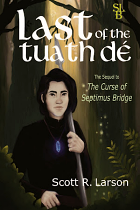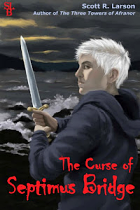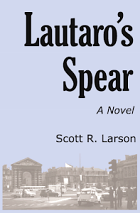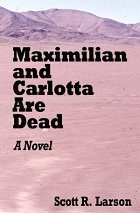Sad passings
One day before the Grammys, the music industry lost one of its biggest stars. And the day after the Irish Film & Television Awards, Ireland lost one of its most beloved actors.
Rashers Tierney (1929-2012)
On a recent long-haul British Airways flight, I perused the plane’s entertainment system and found myself watching, among other things, an old episode of the classic UK TV show Fawlty Towers. At one point, an Irish builder walked into John Cleese’s zany hotel. He was as close to a cartoon character as you could have on a live action show. He was impossibly thin, crowned with an unlikely mane of hair and exuded a calm, laid-back attitude calculated to drive an uptight Englishman insane. It took a while to recognize the actor, who was in his mid-40s at the time, as David Kelly.
The Missus and I have long thought of him as an old friend. She was sure she saw him regularly in her neighborhood during the years she lived in Dublin. I remember seeing him at the Cork Film Festival nearly nine years ago when he made an appearance in support of David Blair’s Mystics, in which he starred along with Milo O’Shea. As slender as he looked on screen, he looked even thinner in person—so much so that it was hard to believe he was real.
While Kelly had a long history on the stage, playing serious roles as well as comic ones, to us film fans he is mainly known for broad comedic performances. And it was with sadness that we learned that he passed away on Sunday. His turn on Fawlty Towers seems to have been the first time he made an impact on British audiences, but in his own country his breakthrough was playing the down-and-out Rashers Tierney in the 1980 miniseries Strumpet City. Based on James Plunkett’s 1969 novel, it was set during the tumultuous period between 1907 and 1914, focusing on the Dublin Lock-out and starring Peter O’Toole as union leader Jim Larkin. But Kelly had been appearing on TV and in films since the 1950s. He played his share of priests (The Run of the Country, Ordinary Decent Criminal, Laws of Attraction) during his career and, in later years, grandfathers (Into the West). His most prominent role as a grandfather (to Freddie Highmore’s titular character) came a half-decade ago in Tim Burton’s Charlie and the Chocolate Factory. He also showed up in movies like A Man of No Importance, Moondance, The Matchmaker and Agent Cody Banks 2: Destination London (with Frankie Muniz) and The Calcium Kid (with Orlando Bloom).
I’ll wager, however, that the most warmly remembered David Kelly performance in the memory of most people is as one Michael O’Sullivan in Kirk Jones’s 1998 crowd-pleasing shaggy dog story, called here Waking Ned but which I saw first saw in Seattle under the better title Waking Ned Devine. Kelly and Ian Bannen played two friends in one of those impossibly quaint tiny Irish villages (actually filmed on the Isle of Man) who discover that their friend Ned has won a big lottery prize and has promptly died from the shock. Rather than forfeit the prize, which the rules require, they conspire to pretend that Ned is still, well, you don’t even have to see the movie to figure out what happens. But not to see it would be to miss a heck of a lot of fun. One of the most memorable and hilarious images to be burned into one’s mind by the film is that of the spindly Kelly, naked as jaybird, riding a motorbike.
Those of us who love great Irish character actors will spend this week waking David Kelly.
Rachel Marron (1963-2012)
Whitney Houston will always be remembered as one of the late 20th century’s great singers. But while we mourn her untimely passing, let us recall that she also had something of a movie career. She starred in three fairly significant feature films.
The first and best remembered, of course, is Mick Jackson’s The Bodyguard, which was essentially a vehicle for Kevin Costner, coming quickly after his appearances in Dances with Wolves, Robin Hood: Prince of Thieves and JFK—and only three years before the critical fiasco that was Waterworld. As the pop diva Rachel Marron, Houston was not exactly required to stretch her acting muscles, but she arguably eclipsed Costner by virtue of her singing performances in the movie and, particularly, her rendition of the megahit “I Will Always Love You,” which was written by, of all people, Dolly Parton. Houston and the film, probably 1992’s preeminent date movie, were successful enough that a respectable movie career for Houston seemed completely plausible.
For the most part, though, it was not to be. Three years later, she appeared in Forest Whitaker’s chick flick Waiting to Exhale, along with Angela Bassett, Loretta Devine and Lela Rochon. The next year she appeared in Penny Marshall’s remake of The Bishop’s Wife, which was retitled The Preacher’s Wife. As the titular spouse in the old Loretta Young role, Houston again was charismatic and turned out some lovely gospel singing. She and Denzel Washington, in the Cary Grant part, really made a winning couple, although the film never really threatened to become a perennial Christmas classic. Sadly, by this point the seeds of Houston’s personal and professional downward spiral were already planted.
In 1997, Houston appeared, as the Fairy Godmother, in a TV production of Rodgers and Hammerstein’s musical Cinderella, and that was the last time we saw her as an actor—at least during her lifetime. Houston was cast in an upcoming remake of Sam O’Steen’s 1976 musical drama Sparkle, which starred Irene Cara and Philip Michael Thomas, about three sisters whose dreams of being a successful singing group founder à la Dreamgirls. Reports suggest that the release of the movie, which will star Jordin Sparks in the title role, is being moved forward in the wake of Houston’s death. The fate of the planned sequel to Waiting to Exhale is less certain.
Whitney Houston was a beautiful woman with an irresistible smile and a voice for the ages, and that made it all the more heart-breaking to watch her life become a bad soap opera and, ultimately, yet another cautionary tale. May she rest in peace.
-S.L., 14 February 2012
If you would like to respond to this commentary or to anything else on this web site, please send a message to feedback@scottsmovies.com. Messages sent to this address will be considered for publishing on the Feedback Page without attribution. (That means your name, email address or anything else that might identify you won’t be included.) Messages published will be at my discretion and subject to editing. But I promise not to leave something out just because it’s unflattering.
If you would like to send me a message but not have it considered for publishing, you can send it to scott@scottsmovies.com.





















